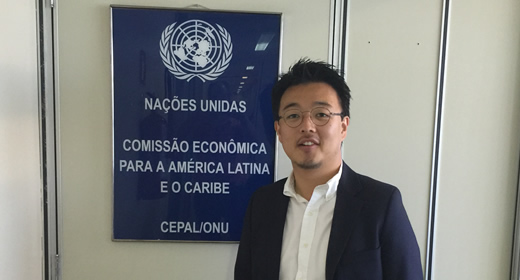
Heonuk Ha, a dual-degree candidate in public policy and applied economics, offers this field report from Brasilia. Ha is working as an economic affairs intern with the United Nations Economic and social Commission for Latin America and the Caribbean (ECLAC).
Review more internship field reports from Ford School students serving organizations around the world.
What is ECLAC?
ECLAC operates many projects to promote economic and social development in Latin America. It also provides support and documentation services for the United Nations Economic and social Commission and its subsidiary bodies.
What are you working on there?
I have been working on a comparative study of public investment projects in South Korea (the Four Major Rivers Restoration Project, designed to fuel sustainable development along major rivers) and Brazil (the Growth Acceleration Program, designed to improve public infrastructure to fuel economic development).
What are you learning?
I have not only practiced my quantitative data analysis skills, but also learned a lot from the research. I have sometimes participated in meetings with government officials from Brazilian ministries, and have gotten involved in conferences, which have helped me to expand my perspective and better understand Brazil’s politics, economy, and culture. It’s also been the perfect place and position for me to practice and learn about public finance and sustainable economic development.
What’s it like in Brasilia?
Apart from my work, I also enjoy my life here in Brasilia. Brasilia, the capital of Brazil, has a unique harmony of beautiful architecture and nature. It’s a UNESCO World Heritage site.
What about the people?
Brazilian people are passionate, friendly, and optimistic, so it takes only a few minutes to make a new friend.
Policy challenges?
Brazil, a BRIC country, has large economic potential based on the abundant natural resources, fertile soil, weather, and high population. However, the protests against the Brazilian government—owing to corruption and economic recession—make me think about the caliber of my work a lot. It’s a heavy responsibility as a future policymaker.
